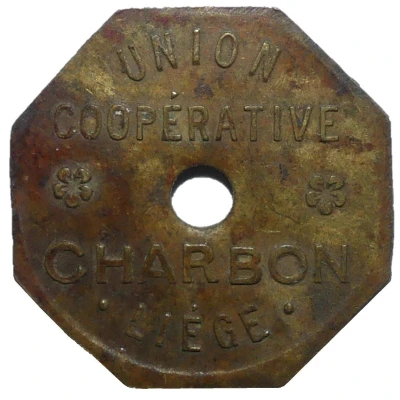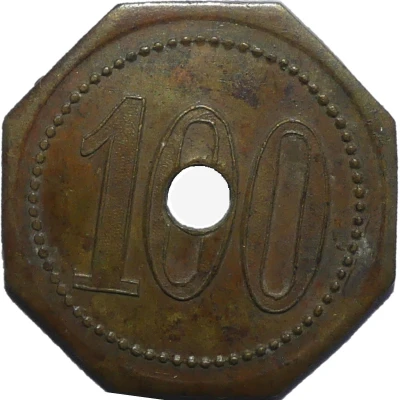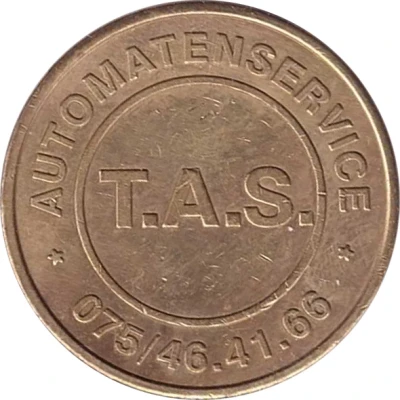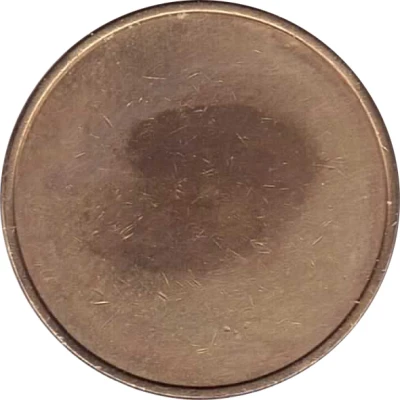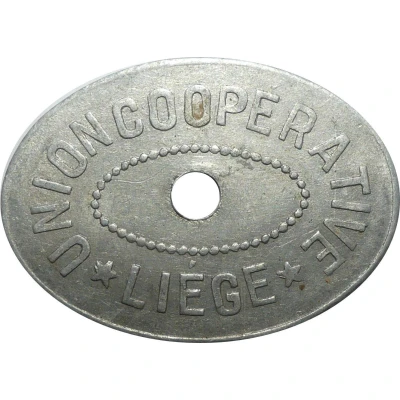
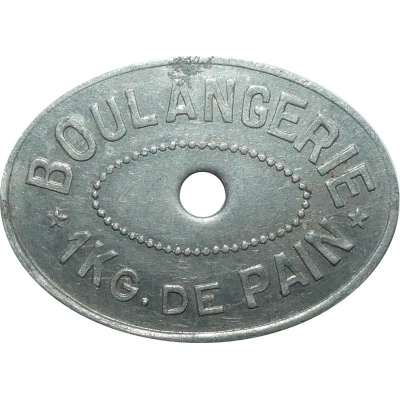

© Collector 86 (CC BY-NC-SA)
Union Coopérative Liège - 1Kg de pain ND
| Aluminium | 1.6 g | - |
| Location | Belgium |
|---|---|
| Type | Trade tokens › Co-operative tokens |
| Composition | Aluminium |
| Weight | 1.6 g |
| Size | 34.3 × 24.8 mm |
| Thickness | 1.15 mm |
| Shape | Oval |
| Technique | Milled |
| Orientation | Medal alignment ↑↑ |
| Demonetized | Yes |
| Updated | 2024-11-13 |
| Numista | N#351254 |
|---|---|
| Rarity index | 97% |
Reverse
Central round hole. Legend around an oval of grenetis.
Script: Latin
Lettering:
*BOULANGERIE*
1 KG. DE PAIN
Edge
Plain
Comment
History of Union Coopérative via http://numisvaldesalm.be/Liege.pdf, page 249.https://www.musee-gourmandise.be/fr/musee-gourmandise/articles-de-fond/77-musee-gourmandise/articles-fond/139-jetons-alimentaires:
Other charitable institutions (besides the Société de Saint-Vincent-de-Paul), such as the Société d'alimentation économique, issued food tokens. Bread at 5 centimes, soup at 10 centimes, vegetables at 10 centimes, meat at 20 centimes, beer at 5 centimes, and complete meals at 50 centimes. Montegnée, Ougrée and Verviers helped supply their populations with bread tokens. La Vieille Montagne in Hollogne distributed bread tokens to its workers. Many cooperatives in Amay, Flémalle-Grande, Fléron, Liège, Ougrée, Seraing and Welkenraedt sold bread tokens to deliverymen. Most of these local cooperatives were replaced in 1918 by the Union coopérative, which continued the same system (6 different tokens). Private bakeries also used bread tokens: Kersten in Mons-Croteux, Lenaerts in Seraing, J. Wauthier also in Seraing, and the Grande Boulangerie Block in Liège. At the École technique de Seraing, students bought tokens at a modest price, entitling them to a midday meal.
